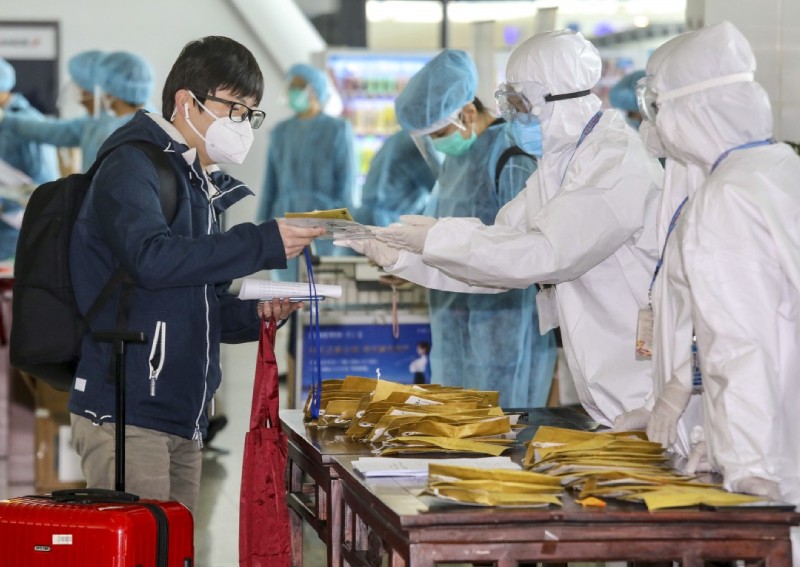Covid-19 may survive at low temperatures, Chinese expert says

The recent outbreak of the novel coronavirus at Beijing’s Xinfadi wholesale farm-produce market could indicate the virus can survive at low temperatures, according to Professor Zhong Nanshan, one of the world’s leading experts on respiratory diseases.
The virus was found on cutting boards for imported salmon at the market in the city’s Fengtai district, and since then many markets have stopped selling fish and meat.
“This is different to Wuhan,” he told Professor Stephen Simpson, from the Charles Perkins Centre at the University of Sydney, in an online briefing on the “Lessons learnt from China’s experience”.
The latest outbreak was in a section of the market for frozen food and, in this case, imported salmon. Zhong said the market “deals with a lot of frozen beef and fish”, much of which is imported from overseas or from within China.
“The latest outbreak suggests the virus may survive at low temperatures,” he said.”We need to be aware of this and to monitor imported food.”
Zhong said there has been no “detailed investigation” into the virus at low temperatures. “But I think it is something we need to know,” he said.
“That is not to say the virus was not carried by someone who handled the fish,” he added.
Zhong has been at the frontline of the outbreak since reporting on person-to-person transmission of the disease in January.
Leading epidemiologist
He rose to public prominence in 2003-04 for his key role in combating the severe acute respiratory syndrome, or SARS.
Currently, he is one of the most trusted voices on managing Covid-19 in China, and leads the team of senior medical experts advising the government on the pandemic with China’s National Health Commission.
He told Simpson, who is also executive director of Obesity Australia, that while the incidence of Covid-19 is going down in many countries, the virus “will be with us until a vaccine is found”.
Wu Zunyou, chief epidemiologist at the Chinese Center for Disease Control and Prevention, told China Daily earlier this past week that it cannot be concluded that salmon is the source of infection just because the novel coronavirus was detected on cutting boards.
He said fish in their natural habitat cannot catch coronavirus; however, it can be contaminated by workers during capture or transportation.
Zhong said the Beijing outbreak “tells us the virus may be able to survive in a wet and cold environment”.
Simpson said, despite the geopolitics, it is vitally important that the scientific community continues to work together to find solutions for the pandemic.
Zhong said if there is one thing the Covid-19 pandemic has taught the world, it is the need to improve health systems and to take emerging infectious diseases seriously.
He said health systems are coping with chronic conditions such as heart disease and diabetes, but “we need to be more aware” of the emergent infectious diseases and take these seriously.
“In the first 20 years of this century, we have had SARS, MERS (Middle East respiratory syndrome) and now Covid-19,” he said.”Plus, three events of animal transmission-all of which have had a huge economic impact.”












Leave a Reply